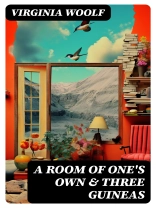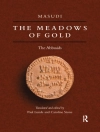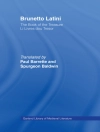In her groundbreaking works, ‘A Room of One’s Own’ and ‘Three Guineas, ‘ Virginia Woolf intricately weaves together a powerful narrative that explores the intersection of gender and society, advocating for women’s intellectual and financial independence. Employing a stream-of-consciousness style rich with rhetorical questions and vivid imagery, Woolf critiques the patriarchal structures that have historically marginalized women’s voices in literature and other fields. The essays, written in the aftermath of World War I, not only reflect the cultural anxieties of the time but also challenge the entrenched social norms surrounding women’s roles in both the domestic and public spheres. Virginia Woolf, a key figure in the modernist literary movement, was deeply influenced by her own experiences as a woman writer in early 20th-century England. Emerging from the Bloomsbury Group—a collective of artists and intellectuals—Woolf was committed to advocating for social reform and gender equality. Her personal struggles with mental health and societal expectations inform her poignant discourse on autonomy and creativity, making her insights both personal and universally resonant. Readers seeking a profound understanding of feminism’s literary foundations will find ‘A Room of One’s Own’ and ‘Three Guineas’ essential. Woolf’s eloquence captivates while provoking critical thought, making her work indispensable for those interested in the evolution of women’s rights and the role of the individual in society. This meticulously crafted prose remains a clarion call that resonates with contemporary feminist discourse.
Circa l’autore
Virginia Woolf, born Adeline Virginia Stephen on January 25, 1882, in London, was a pioneering English writer known for her modernist and feminist literature. Woolf’s narrative style is distinguished by her stream-of-consciousness technique, which sought to portray the inner thoughts and emotions of her characters, often focusing on the psychological rather than the external world. Her writings are esteemed for their depth and innovation, often addressing topics such as gender, class, and the individual’s quest for self-expression. ‘A Room of One’s Own’ (1929) is one of Woolf’s seminal works, which is an extended essay that explores the historical neglect of women writers and argues for both a literal and figurative space for women in a literary tradition dominated by men. In ‘Three Guineas’ (1938), Woolf continued her feminist commentary, analyzing the roots of war and advocating for women’s intellectual and financial independence as a means of social reform. Woolf was a central figure in the Bloomsbury Group, a collective of intellectuals, writers, and artists. Sadly, her life was marked by bouts of mental illness, and she died by drowning on March 28, 1941, leaving behind a legacy that has continued to influence writers and feminists alike. Woolf’s imaginative prose and her explorations of the female experience have cemented her as one of the foremost modernist literary figures of the twentieth century.












